To Whom Does God Speak? – Amos 1:2
 There is a lion roaring, but only the prophet can hear.
There is a lion roaring, but only the prophet can hear.
I said that the opening editorial note in the book of Amos (1:1) already raises an issue for me. The issue is: Who speaks for God? It may not be the person we thought was authorized to do so.
Which also brings to mind another question: ‘To Whom (if anyone) does God speak?'”
The prophet is the one who sees what others do not. There is an interesting detail in the way Amos 1:1 tells us about this prophecy: Amos spoke what he saw. “The words of Amos… which he saw….” Amos conveyed the sense of what he saw.
But, in Amos 1:2 it is more a matter of what he heard:
וַיֹּאמַר יְהוָה מִצִּיּוֹן יִשְׁאָג וּמִירוּשָׁלִַם יִתֵּן קוֹלוֹ וְאָבְלוּ נְאוֹת הָרֹעִים וְיָבֵשׁ רֹאשׁ הַכַּרְמֶל
“And he said:
The LORD roars from Zion,
and utters his voice from Jerusalem;
the pastures of the shepherds wither,
and the top of Carmel dries up.” (NRSV)
The commentators all indicate that the Hebrew word שָׁאַג (sha’ag) suggests the roaring of a lion.
Thus, Adam Clarke comments:
This introduction was natural in the mouth of a herdsman who was familiar with the roaring of lions, the bellowing of bulls, and the lowing of kine. The roaring of the lion in the forest is one of the most terrific sounds in nature; when near, it strikes terror into the heart of both man and beast.
There is danger, but none but the prophet hears it. The prophet’s word is a warning.
And it must have seemed ridiculous. Amos lived in a time of peace and prosperity. It was a time when people would most naturally be at their ease. There was no danger.
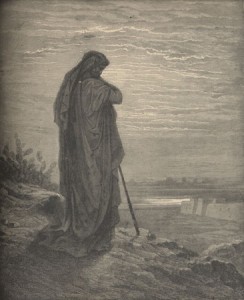 This is Amos: an unauthorized voice speaking an unwelcome word to a people who are not inclined to hear. Amos sees the world he is living in, and hears roaring and thundering. He hears danger, when no one else can.
This is Amos: an unauthorized voice speaking an unwelcome word to a people who are not inclined to hear. Amos sees the world he is living in, and hears roaring and thundering. He hears danger, when no one else can.
To whom does God speak? The one who is listening. The one who not defined by popular opinion. The one who pays attention to things that are more abiding and true. Amos’ sensibilities where rooted in the faith traditions in which he lived. Amos speaks the word of the LORD — that is, the word of YHWH, the God of Israel.
Such a person will hear what others do not. Amos’ perception of things was rooted in his conception of God. God is righteous and just. God is at work in the world to set things right: to ensure fairness and justice. God cares about the poor and the oppressed and the helpless. God is a redeemer. God delivered a captive people and made them a nation. God is a judge, who sees what others ignore, and who sets things right.
Thus, Amos’ message is a message of judgement. But, there is a kind of hope in this. It means that there is One who watches events on earth — and who cares about setting things right.
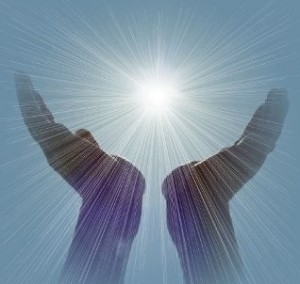 The Psalms call us to rejoice in the judgement of God:
The Psalms call us to rejoice in the judgement of God:
- “Let the heavens be glad, and let the earth rejoice; let the sea roar, and all that fills it; let the field exult, and everything in it. Then shall all the trees of the forest sing for joy before the LORD; for he is coming, for he is coming to judge the earth. He will judge the world with righteousness, and the peoples with his truth.” (Psalm 96:11-13 NRSV)
- “Let the floods clap their hands; let the hills sing together for joy at the presence of the LORD, for he is coming to judge the earth. He will judge the world with righteousness, and the peoples with equity.” (Psalm 98:8-9 NRSV)
The notion that there is indeed a High God who is righteous and fair is, in itself, a message of hope. It means hope for the forgotten, for those who have been unfairly treated.
And this hope comes “from Jerusalem.” Amos speaks out the great traditions of Israel that had come before him. He dares to speak in the name of the God of Abraham, Isaac and Jacob. He speaks for the God whose domain is the whole world — but whose word has been made known though the particular history of the Hebrew people.
Thus, this is the roaring of the God of redemption and deliverance, as well. The roaring of the God who hears the cries of an oppressed people. The roaring of the God who cares for the outcasts, the forgotten, the oppressed.
But, it is bad news to those who benefit from social injustices.







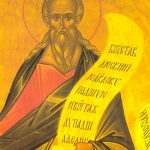

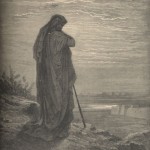
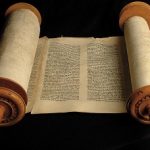
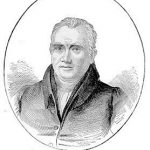



2 Responses